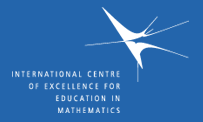
The University of Sydney
15 January – 9 February 2007
Time Series Analysis
- Duration
- Four Weeks
- Lecturer
- Niels Wessel (University of Potsdam, Germany) and Hagen Malberg (Forschungszentrum Karlsruhe, Germany) Tutorial preparation: Norbert Marwan
- Consultation Hours
- Wednesdays 11–12 Carslaw Room 628.
- Assessment
- 80% Final exam (Friday 9 Feb 14–16h in Carslaw Room 350), 20% assignments.
- Course Outline
- Time series analysis, i.e. in time sequentially ordered observations, is of arising
importance in different scientific fields, particularly in medicine. The course gives an introduction
into the specific features and application of biomedical time series analysis in science and praxis.
The course contains the presentation of the biological background. Physiological regulatory systems,
which are relevant in clinical diagnosis, are presented.
Beside neuronal and internal processes, the main focus is set on the cardiopulmonal system, the autonomic cardiovascular regulation. How to measure physiological biosignals and how to extract artifact- and noiseless time series from the biosignals, these tasks are necessary for analysing the physiological processes, as a precondition. The course presents the number of classical and new mathematical approaches for time series analysis: stationarity analysis, time and frequency domain methods, methods of non-linear dynamics, analysis of seldom physiological events (i.e. arrhythmias) and coupling phenomena. Furthermore, knowledge-based methods, i.e. fuzzy and neuronal approaches are introduced.
The course also presents the application of mathematical methods for clinical diagnosis and risk stratification. How to perform a clinical study and how to generate new physiological knowledge from the calculated parameters are introduced. Additionally to the course theoretical and practical exercises are offered, where also real data sets from medicine will be analysed. An introduction into the used software will be given.